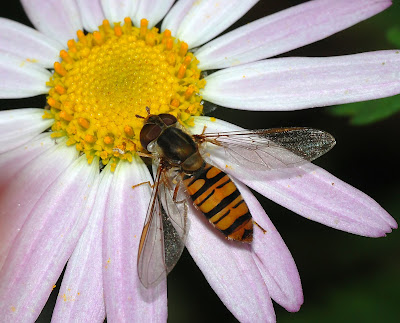 |
| Which plants attract aphid predators to the garden? |
Aphids are right here at the top of the list when it comes to garden pests. Not only are the damaging to plants but they also exude honeydew from their abdomens attracting hordes of ants and an unsightly black fungus known as sooty mould. Of course you could go out and spend your hard earned cash on indiscriminate or organic insecticides but wouldn't it be so much easier - and kinder to the environment - if you could get nature to do all of the hard work for you?
 |
| Which plants attract aphid predators to the garden? |
However there is an alternate way which works particularly well with aphid predator insects where only the larvae are the predators (lacewings and hoverflies), and that is to provide plants that the adults are attracted to. They may not be as attractive as you normal choice of ornamental garden plants but they more than make up for it in usefulness.
Below is a list of plants that will attract the main aphid predators:
Achillea - ladybirds and lacewings
Alyssum – hoverflies
Angelica gigas – lace wings
Convolvulus minor – ladybirds and hoverflies
Cosmos bipinnatus – ladybirds and hoverflies
Daucus carota (Queen Anne's lace)- ladybirds, lacewings and hoverflies
Filipendulina – Ladybirds and lacewings
Foeniculum vulgare (fennel) - ladybirds and lacewings
Iberis umbellata – hoverflies
Limonium latifolium (Statice) – hoverflies
Lupin - hoverflies
Petroselinum crispum (parsley) – hoverflies
Tanacetum vulgare (tansy) – ladybirds and lacewings
Remember that by simply controlling aphids with contact or systemic insecticides you are exposing all other insects, beneficial or otherwise, to the active poisons within the chemical spray. This means that ay aphid predators that may be present will also be eradicated. By using just a few of these plants you can easily tip the balance in favour of aphid predator adults. More importantly, if your choice of planting is such that you have a good succession of flowering throughout the main part of the year, you can reach a point where you will have difficulties in finding any aphid infestations.
And of course, once these plants have established in your garden your predators will return year after year without any further intervention, hopefully increasing in their numbers
For related articles click onto the following links:
Growing Plants to Attract Beneficial Insects







No comments:
Post a Comment